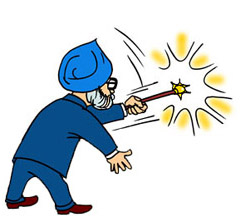Apr 18, 2024
Apr 18, 2024
 The win – win argument by the Indian Prime Minister Mr. Manmohan Singh for the Indo US Nuclear Agreement in the Parliament emphatically overcame resistance of many detractors. Ironically the Agreement inked more than a year back on 19 July 2005 is being hotly debated in Indian political as well as nuclear scientific circles as being a surrender of India’s sovereignty, with the US President rendering a yearly report card on India’s good performance. No doubt many of the arguments put forth by its critics raise serious doubts about US intentions which may shackle not only the country’s nuclear progress in the years ahead but also impose avoidable restraints on future governments. The other objections related to restraint on fissile material and nuclear testing by the country which were found objectionable. The introduction of the Fissile Material Cut Off Treaty in Conference on Disarmament in Geneva should render some of these protests invalid. Though the Prime Minister emphatically emphasized that any deviation from the clauses of the 18 July Agreement will not be accepted, the soundness of his arguments lay in underlying its strategic necessity in India’s national interest.
The win – win argument by the Indian Prime Minister Mr. Manmohan Singh for the Indo US Nuclear Agreement in the Parliament emphatically overcame resistance of many detractors. Ironically the Agreement inked more than a year back on 19 July 2005 is being hotly debated in Indian political as well as nuclear scientific circles as being a surrender of India’s sovereignty, with the US President rendering a yearly report card on India’s good performance. No doubt many of the arguments put forth by its critics raise serious doubts about US intentions which may shackle not only the country’s nuclear progress in the years ahead but also impose avoidable restraints on future governments. The other objections related to restraint on fissile material and nuclear testing by the country which were found objectionable. The introduction of the Fissile Material Cut Off Treaty in Conference on Disarmament in Geneva should render some of these protests invalid. Though the Prime Minister emphatically emphasized that any deviation from the clauses of the 18 July Agreement will not be accepted, the soundness of his arguments lay in underlying its strategic necessity in India’s national interest.
The key issue is India’s need for nuclear fuel, particularly Uranium which can only be supplied by members of the Nuclear Suppliers Group (NSG) after the US has given a go ahead and the International Atomic Energy Agency (IAEA) has established norms for inspection of the facilities, 16 out of a total of 22, where such fuel is being processed. Without these positive interventions in India’s favor, countries as Australia with large Uranium reserves have very clearly indicated that they would not open up supplies. Thus the Indo US Nuclear Agreement is just the first step in many international requirements before India gets the necessary fuel. The other fuel route open to India, of Thorium is still a long way from being successfully consummated for sustained nuclear energy production, despite large reserves in the country and thus adds to urgency for acquiring Uranium.
With an energy target of 40,000 Mega watts from nuclear sources by 2030, there is a sense of urgency with which the Indian government has been seized in the recent past leading to positive interaction with a number of countries and agencies simultaneously for overcoming their resistance to nuclear supplies to the country. The IAEA team has already visited India in anticipation of US approval to save on time once it comes through by the end of the Year. Similarly America is actively engaging members of the NSG to overcome resistance from a number of countries including China. Thus the dice of international approval is heavily loaded in India’s favor, the first time when a non signatory of the Nuclear Non Proliferation Treaty will be granted such a concession virtually accepting India as a nuclear weapon state. This will undoubtedly enhance the country’s leverage in international as well as regional forums.
The cacophony of nay sayers in the past one month or so has raised serious questions of the deal compromising on India’s sovereignty including adoption of an independent foreign policy course. These fears are not wholly unfounded. However getting past the powerful non proliferation nuclear lobby of which Richard Lugar, the Chairman of the United States Senate Foreign Relation Committee is a staunch patron was likely to be extremely difficult. Having successfully run the gauntlet, the unexpected resistance at home seemed to have stymied the Indian government albeit temporarily. The Prime Ministers rational and emotional appeal has won over many admirers including the inveterate debater Sitaram Yechury of the CPI (M). The issue however has raised a pertinent flaw in the Indian parliamentary system, wherein the Executive has been granted unlimited powers of undertaking foreign policy initiatives without taking the legislature into confidence. A constitutional amendment may overcome this shortcoming and avoid such embarrassing interjections to future foreign policy initiatives by the government and may need some deliberation.
20-Aug-2006
More by : Col. Rahul K. Bhonsle